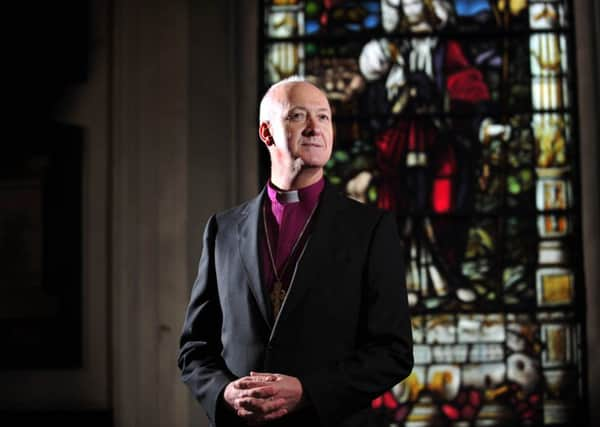Andrew Vine: if you don't like the C-word, tough. Show a little more faith in people over Christmas


The word in question, of course, being Christ. And if there are any secularists out there who are offended by it, well tough. Get over it.
There are, though, many more who won’t take offence. And among them are people of faiths other than Christianity who must wonder why, as a country, we have become so institutionally embarrassed about acknowledging the basis of the reasons we celebrate Christmas.
Advertisement
Hide AdAdvertisement
Hide AdSuch is the nervousness about this upsetting people that the Prime Minister felt it necessary to point out in the Commons last week that Christians should be able to speak about their faith and what Christmas means to them without fearing a negative reaction.
A statement of the blindingly obvious, surely? Regrettably not. Theresa May spoke up amid disturbing signs of a subtle, yet ever-increasing, pressure by some sections of society to take faith out of Christmas.
The Equality and Human Rights Commission also touched on this when it urged employers not to prevent workers openly celebrating Christmas through fear of offending those of other religions.
The point was underlined by the Bishop of Leeds, Nick Baines, who said that some Christians might feel “picked on or beleaguered” for expressing their faith and this could, in extreme cases, end up with people attempting to strip the religion out of Christmas.
Advertisement
Hide AdAdvertisement
Hide AdHe’s absolutely right, but the really worrying thing is that anti-Christian sentiment threatens to move from into the mainstream.
I know a couple of teachers who worry every year about staging the traditional Nativity play and carols being sung, because of their uneasiness about the possibility of parents objecting to having their children “indoctrinated”.
One of them even recalls with a touch of despair a debate over whether the school Christmas tree should be topped with a star-shaped ornament, because it might be construed as too overtly a Christian representation of the Star of Bethlehem.
It’s tempting to dismiss this as just a form of political correctness, but it’s much more than that. We’ve drifted into a climate where the fear of causing offence far outweighs the actual prospect of somebody being upset. It is a well-intentioned mentality, but wholly misguided.
Advertisement
Hide AdAdvertisement
Hide AdInstead of promoting inclusivity, it fosters the risk of causing divisions by creating an edgy, uncertain atmosphere in which attempts to second-guess how others might feel produces a state of abject nervousness.
The result is that people and organisations avoid anything that has Christian connotations.
Witness the arrays of greetings cards in the shops. Each year, the number that have quietly dropped the word Christmas in favour of the anodyne “season’s greetings” increases.
That’s also creeping into everyday discourse, with the ghastly Americanism “the holiday season” being heard ever more often. If that isn’t stripping the faith out of Christmas to leave it nothing other than a spending spree of commercial excess, I don’t know what is.
Advertisement
Hide AdAdvertisement
Hide AdThis atmosphere can make those of faith feel beleaguered, as Bishop Baines said. A friend who is a practising Roman Catholic always used to send Christmas cards that featured religious imagery. He doesn’t any more.
When I asked why, he said he didn’t want anybody to think him strange, or a religious maniac. Nobody did. Whether or not they shared his faith, his beliefs were respected, as was the fact that Christmas has profound meaning for him.
It is a great shame that he should feel intimidated about expressing his faith, but it’s a product of the nervousness that has slowly grown up around celebrating Christmas as anything other than a ritual of giving and receiving gifts.
The absurdity of this is that the overwhelming majority of people of other faiths are not remotely offended by Christmas, any more than Christians are offended by Jews celebrating Chanukah, Muslims Eid or Hindus Diwali.
Advertisement
Hide AdAdvertisement
Hide AdIn my corner of Yorkshire, the two earliest Christmas cards invariably come from a couple of neighbours, one Muslim, the other Sikh. Just as invariably, we call on each other on the 25th to wish merry Christmas and shake hands. Such simple expressions of goodwill are replicated all over the country, between people of all faiths or of none.
Mutual reaching out to each other like this has more in keeping with the spirit of Christmas than anything the don’t-mention-Christ brigade has to offer. It also does more to foster good relations between different faiths than the studious avoidance of any mention of Christianity.
Far from causing offence, Christmas brings people together. Whatever else Christmas has become, it is at heart a Christian festival, and nobody should be ashamed or nervous of celebrating it as such.